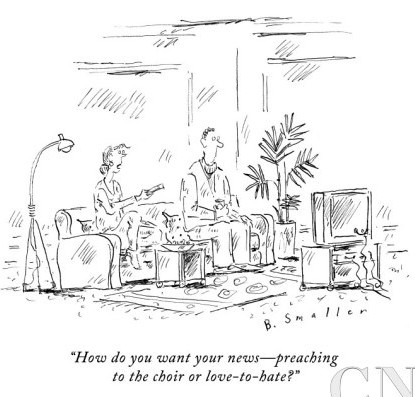

1. A fierce editorial by George Monbiot appeared in The Guardian this past week about the fallout of Aspirational Parenting in the UK, “aspirational” being a loose euphemism for what we call “performancism”. The tagline makes no bones: “Surrender your freedom, avoid daylight, live to work, and you too could join a toxic, paranoid elite”. The statistics about mental health he cites are as alarming as they’re intended to be, though I dare say that most could be transposed to a yank context. (I’m familiar with “nursery consultants”, but this is the first I’m hearing of $450/hr playdate coaches). Monbiot’s vitriol makes sense when you think of the toll our increasingly narrow ambitions are taking on youngsters. What’s missing, sadly, is any compassion for the parents who feel obliged to participate in (and perpetuate) such a soul-crushing system. I’d wager that more than a few feel trapped and/or deeply afraid. As if we needed another reminder of 2 Cor 2:6, that the Law kills. Lord have mercy, ht RT:
Mental health beds for children in England increased by 50% between 1999 and 2014, but still failed to meet demand… The number of children admitted to hospital because of self-harm has risen by 68% in 10 years, while the number of young patients with eating disorders has almost doubled in three years… In the past year, according to the charity YoungMinds, the number of children receiving counselling for exam stress has tripled.
An international survey of children’s wellbeing found that the UK, where such pressures are peculiarly intense, ranked 13th out of 15 countries for children’s life satisfaction, 13th for agreement with the statement “I like going to school”, 14th for children’s satisfaction with their bodies and 15th for self-confidence. So all that pressure and cramming and exhortation – that worked, didn’t it?
In the cause of self-advancement, we are urged to sacrifice our leisure, our pleasures and our time with partners and children, to climb over the bodies of our rivals and to set ourselves against the common interests of humankind. And then? We discover that we have achieved no greater satisfaction than that with which we began.
In 1653, Izaak Walton described in the Compleat Angler the fate of “poor-rich men”, who “spend all their time first in getting, and next in anxious care to keep it; men that are condemned to be rich, and then always busie or discontented”. Today this fate is confused with salvation.

2. Next up, Arthur Brooks spilled some ink in the Times on “The Thrill of Political Hating”, reminding us once again of how intoxicating (and blinding) self-righteousness can be–of how good indignation feels and of the cultural factors which are exaggerating certain feedback loops. Thankfully, he points the finger where it belongs and recalls some time-tested marital wisdom along the way:
Whether or not we want to admit it, political hate is a demand-driven phenomenon. We are the ones creating a big market for it.
The social psychologist and relationship expert John Gottman was famously able to predict with up to 94 percent accuracy whether couples would divorce just by observing a brief snippet of conversation. The biggest warning signs of all were indications of contempt, such as sarcasm, sneering and hostile humor. Want to see if a couple will end up in divorce court? Watch them discuss a contentious topic — which Mr. Gottman has done thousands of times — and see if either partner rolls his or her eyes. Disagreement is normal, but dismissiveness can be deadly. As it is in love, so it is in politics. With just an ironic smile, one can dismiss an entire class of citizens as uncultured rubes or mindless theocrats.

3. On a considerably sweeter note, over at The A/V Club, Libby Hill explored how “Calvin And Hobbes embodied the voice of the lonely child”. I for one found her thesis very convincing. Comics as ministry, people, ht GK:
Calvin didn’t have trouble focusing on the world around him, he had trouble reconciling himself to the fact that the world around him was such a disappointment. The reason the strip appealed to people both young and old is because Calvin was feeling underwhelmed at a college graduate level. It’s not unheard of for children to experience this, particularly those who are more sensitive to their surroundings, and for many it was a relief to know that seeing the world without the luster and facade constantly created for us wasn’t so unusual. Calvin made it okay to be disheartened and disappointed by life and normalized the inherent loneliness that childhood can bring.
4. Social Science Study of the Week come to us from Quartz: “When people ask to borrow money, the words they use can foretell whether they’ll pay it back.” Invoking the Almighty, it turns out, does not bode well:
According to a new study, borrowers who try to appeal to their prospective lenders’ emotional side—by mentioning God, divorce, or the needs of family members, for example—are less likely to fulfill their loan obligations… The word God was 2.2 times more likely to appear in a loan application where the borrower eventually defaulted.
One is tempted to make a joke about God having already paid various debts.
5. Funniest thing I’ve seen all week is The New Yorker’s list of All Possible Humanities Dissertations Considered as Single Tweets. Some of them hit close to home. A few highlights:
- The name we’ve been using for this stuff is anachronistic. Here’s a better name.
- An old, prestigious thing still deserves its prestige, but for a heretofore undiscovered reason.
- This author, normally seen as naïve or untrained, is in fact very self-aware, and hence more like us.
- This is why we can’t have nice things.
While we’re close-to-home, I winced more than once reading Mashable’s treatise on the death of the hipster and the rise of the Yuccie (or Young Urban Creative). A Yuccie, it turns out, is more enterprising than a Hipster but more artistically-motivated than a Yuppie (though just as cynical as both groups). That is, they want to be both successful and creative at the same time. You can read the article for all the precise contours. Suffice it to say, it’s cutting. I suppose it helps that the guy coining the term, David Infante, cops to being a Yuccie himself. To wit:
Of all the reasons I enjoy being a writer, the single driving force behind my career trajectory has been validation. I write for validation: of my peers, of my parents, of the followers who retweet me, even of the commenters who say cruel things in my general direction beneath every piece I’ve ever published.
Don’t get me wrong — I need the money, too, as much as any of my peers. But if I hadn’t insisted on majoring in English, writing professionally and “expressing myself,” I probably could have chosen a more lucrative path. But I need to be told, repeatedly and at length, that I have valuable ideas. That my talent is singular. That I’m making a dent, the size and location of which is less important than the fact that it’s shaped like me.
If it sounds like a familiar if extra-entitled expression of self-justification and the need to feel “good enough” (righteous), well, that’s because certain drives might not be generational after all.
7. Since item number one on the Yuccie checklist is owning multiple copies of Jonathan Franzen’s Freedom (…), I might as well draw attention to the discussion said author had with Laura Miller recently about his forthcoming book, Purity. Lots of great observations throughout, a favorite being:
When you’re young you can see things in very black and white terms, and purity seems like something to aspire to—the pure artist, or pure writer, or purely serving the oppressed or whatever. And I wanted to write a book that was capacious enough to both encompass that youthful idealism and also see how it plays out for better or worse, usually for worse.
Also in books, Judd Apatow was the subject of this weeks’ By the Book interview in The NY Times Book Review, and his answers were terrific (“I love self-help. I need self-help. I own them all. None are working.”). Truly amazing that he name-checked Andre Dubus twice. And his comment about the Bible is worth reprinting.
What book did you feel you were supposed to like, and didn’t? Do you remember the last book you put down without finishing?
The Bible. It’s just not working for me. I wish it was. Wouldn’t it be great if it did work for me and I had the peace one gets when knowing the universe is just and kind and guided by eternal intelligence? Maybe I’m reading it wrong [ed note: could be!]. I am more of a “Why Good People Do Bad Things,” by James Hollis, kind of guy.
8. Pretty slim pickings on the religious-o-sphere this week, though I loved the little interview First Things did with comedian Jim Gaffigan:
FT: What would you say your Catholic faith provides you in a positive way, on a day-to-day basis?
Jim: My faith is very associated with the notion of mercy. I understand that there is something greater than myself that does not judge me in a negative manner—or forgives me, I should say. For me, being in touch with the idea that I’m not in control of everything is important. When I find myself frustrated, I have some distance from that idea I’m not in charge, for instance in how this conference call is setup.
9. Finally, in television, the most recent episode of Veep (season 3, episode 9) deserves a mention. A true masterpiece of an episode, to say nothing of the medium itself, the mile-a-minute quips once again masked the show’s subversive wisdom, esp re: scapegoats, blamelessness, truth, justification, etc. I’m counting the days til someone collects Ben Cafferty’s testimony on youtube. Iannucci will be missed. Meanwhile, Wayward Pines is great summer fun, my favorite Old Testament ‘adaptation’ in years. Eat your heart out, Aaronofsky. Speaking of which, the first two episodes of Hannibal‘s aren’t skimping on the theological element. Like nothing else on TV–except perhaps Chef’s Table on Netflix. I’ll leave it to Will to give us the final word on GoT after this Sunday’s finale. For the Watch!?
Strays
- West Coast Friends! The good people at Cross of Christ Church in Costa Mesa were bold enough to post their answer to the question “Why Did We Invite David Zahl to Speak at the Love, Suffering and Creativity Conference?” The event happens the evening of August 1st, and I could not be more excited. For more info or to grab a ticket (space is limited), click here.
- German newspaper Die Zeit interviewed Nadia this week in conjunction with her role at Kirchentag, and it’s a wonderful interview (though auf Deutsch, selbstverstaendlich).
- Jerry Seinfeld joins the chorus of comedians who feel that our liberal arts colleges have lost their sense of humor.
- Sad news about actor Christopher Lee dying this week. In tribute, we offer our Short Guide to Hammer Horror, of which he was the Prince (of Darkness).
- RIP New Testament scholar J. Louis Martyn, husband of our beloved Dorothy.

COMMENTS
3 responses to “Another Week Ends: Aspirational Fallout, Political Hating, Lonely Calvin, Dissertation Tweets, Yuccies and Christopher Lee”
Leave a Reply













I just like the helpful information you provide in your articles
Great information shared.. really enjoyed reading this post thank you author for sharing this post .. appreciated
I appreciate you sharing this blog post. Thanks Again. Cool.